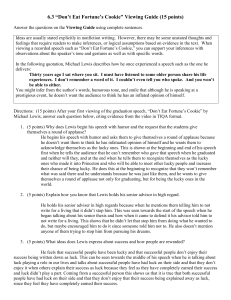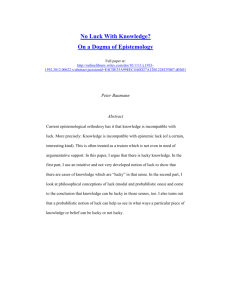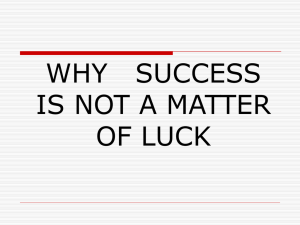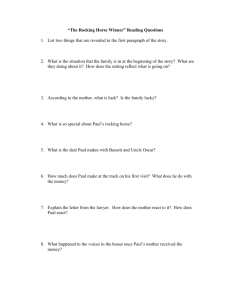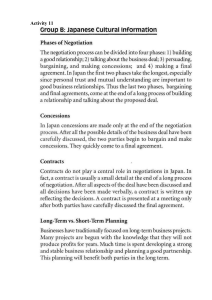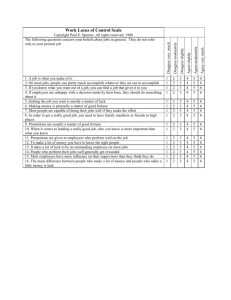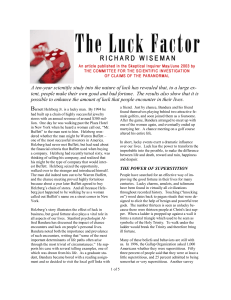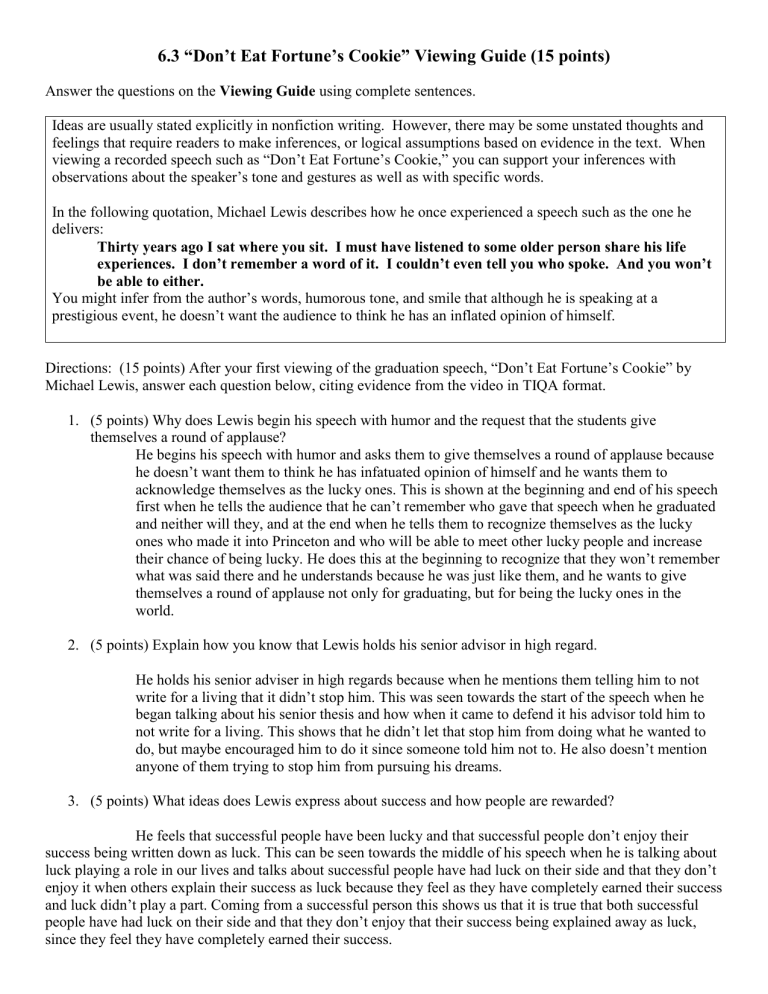
6.3 “Don’t Eat Fortune’s Cookie” Viewing Guide (15 points) Answer the questions on the Viewing Guide using complete sentences. Ideas are usually stated explicitly in nonfiction writing. However, there may be some unstated thoughts and feelings that require readers to make inferences, or logical assumptions based on evidence in the text. When viewing a recorded speech such as “Don’t Eat Fortune’s Cookie,” you can support your inferences with observations about the speaker’s tone and gestures as well as with specific words. In the following quotation, Michael Lewis describes how he once experienced a speech such as the one he delivers: Thirty years ago I sat where you sit. I must have listened to some older person share his life experiences. I don’t remember a word of it. I couldn’t even tell you who spoke. And you won’t be able to either. You might infer from the author’s words, humorous tone, and smile that although he is speaking at a prestigious event, he doesn’t want the audience to think he has an inflated opinion of himself. Directions: (15 points) After your first viewing of the graduation speech, “Don’t Eat Fortune’s Cookie” by Michael Lewis, answer each question below, citing evidence from the video in TIQA format. 1. (5 points) Why does Lewis begin his speech with humor and the request that the students give themselves a round of applause? He begins his speech with humor and asks them to give themselves a round of applause because he doesn’t want them to think he has infatuated opinion of himself and he wants them to acknowledge themselves as the lucky ones. This is shown at the beginning and end of his speech first when he tells the audience that he can’t remember who gave that speech when he graduated and neither will they, and at the end when he tells them to recognize themselves as the lucky ones who made it into Princeton and who will be able to meet other lucky people and increase their chance of being lucky. He does this at the beginning to recognize that they won’t remember what was said there and he understands because he was just like them, and he wants to give themselves a round of applause not only for graduating, but for being the lucky ones in the world. 2. (5 points) Explain how you know that Lewis holds his senior advisor in high regard. He holds his senior adviser in high regards because when he mentions them telling him to not write for a living that it didn’t stop him. This was seen towards the start of the speech when he began talking about his senior thesis and how when it came to defend it his advisor told him to not write for a living. This shows that he didn’t let that stop him from doing what he wanted to do, but maybe encouraged him to do it since someone told him not to. He also doesn’t mention anyone of them trying to stop him from pursuing his dreams. 3. (5 points) What ideas does Lewis express about success and how people are rewarded? He feels that successful people have been lucky and that successful people don’t enjoy their success being written down as luck. This can be seen towards the middle of his speech when he is talking about luck playing a role in our lives and talks about successful people have had luck on their side and that they don’t enjoy it when others explain their success as luck because they feel as they have completely earned their success and luck didn’t play a part. Coming from a successful person this shows us that it is true that both successful people have had luck on their side and that they don’t enjoy that their success being explained away as luck, since they feel they have completely earned their success.
